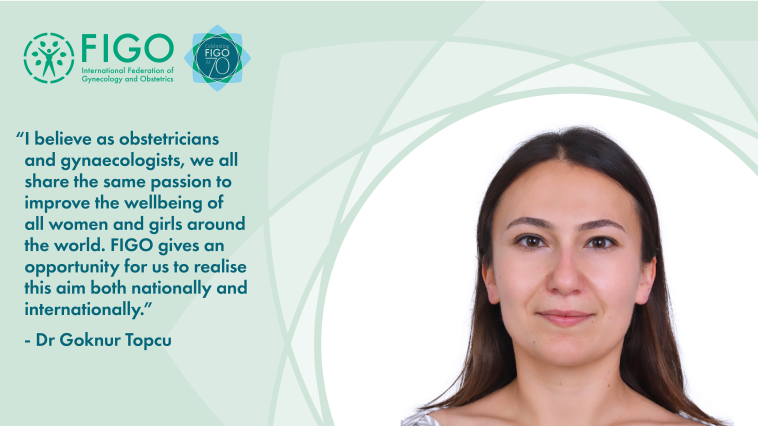Illuminating Voices: Celebrating 70 Years of FIGO with Dr Goknur Topcu, past President of WATOG

In a vibrant tribute to FIGO's 70th anniversary, Dr Goknur Topcu, past President of WATOG and member of the FIGO Committee on Reproductive Medicine, Endocrinology and Infertility, shares her remarkable journey and highlights the pivotal role FIGO has played in shaping global women's health.
Tell us about your involvement with FIGO throughout the years
My journey with FIGO began back in medical school, where we followed FIGO guidelines in treatment and diagnosis in the Obstetrics and Gynaecology department. It wasn't until I had the opportunity to join a FIGO Congress during my postgraduate training six years ago that I started to learn more of FIGO. I realised then that FIGO was not only an association that sets guidance for obstetricians and gynaecologists globally, but also an organisation immensely involved in every aspect of the health and wellbeing of women, girls and newborns.
What led you to collaborate with FIGO initially?
As obstetricians and gynaecologists, we all share the same passion for improving the health and wellbeing of all women, girls and newborns around the world. FIGO gives an opportunity for us to realise this aim both nationally and internationally. I am also personally interested in postgraduate education as well as establishing networks, exchanging culture, information and ideas among young OBGYNs.
I believe it is important to be aware of all the challenges that women and girls are facing in different parts of the world, understand the reasons that lie beneath those challenges and search for the right solutions. It is vital for health care professionals to be well educated in what we do, and to support each other along the way to reach our common goals.
What FIGO achievement are you most proud of?
I can think of many achievements with FIGO that I am proud of, but the 'One-World-Exchange' project that we recently started comes on the top of the list. With this project, 60 trainees from all around the world gather to do a three-day exchange in the country where FIGO Congress takes place. This is followed by an invitation to attend the FIGO Congress and a chance to present their research topics with the global experts in their field. Trainees can experience the local training life, compare similarities and differences among each other, discuss cases and aspects of care, come up with ideas to shape a better future, support and nourish each other and establishing long-lasting friendships. FIGO fully supports the trainees, covering all expenses to attend the project which makes it possible for trainees from low-middle income countries to experience such an spectacular event.
In your opinion, what are the biggest challenges to overcome in our journey to improve the health and rights of women girls and newborns worldwide?
Healthcare is not provided equally to all women, girls and newborns in each country. Resources and challenges also differ according to the region and the country.
I believe it is utmost important fully understand the root causes of these challenges and work together to address them. FIGO has an important role to play, uniting all health care providers and facilitating collaborations with relevant stakeholders to achieve shared goals.
What would you like to see from FIGO in the next 30 years?
In the next 30 years I hope that FIGO will be able to:
- Expand, reach out and include all countries and OBGYNs into their network.
- Actively address all the needs of women, girls and newborns and play a leading role to meet those needs.
- Continue working hard to achieve an equal, high standard of care to be provided around the world.
Join us in celebrating FIGO's 70th anniversary - share your memories with us